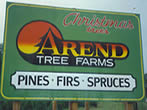So, I woke up this morning and thought I was being punked. NPR is, after all, notorious for its over the top April Fools' Day stories reported with deadpan delivery.
Then I remembered: it’s May 6th.
I couldn't believe my ears. My local NPR station spends the last ten minutes of each Morning Edition hour focusing on local news. This morning's story, entitled "Living Prehistorically in the Modern Age", blew the socks off their traditional Beacon Hill backbiting fare (Click here for the whole story: http://www.wbur.org/2010/05/05/going-paleo). So, while I initially intended to kick off the official blog with my thoughts on breakfast, this breaking news demanded my attention.
Basically, the story followed several young urban hipsters who engage in a practice they term 'ancestral eating'. This takes the whole ‘back to basics’ idea of the organic movement to an extreme.
Both the organically obsessed and Paleolithic life-stylers believe that what we eat has become too high tech – transformed from naturally nutrient-rich food into food-like substances. Where they part company with one another, however, is that the Paleovores also believe that even agriculturally harnessed foods are not part of the diet for which humans have evolved. This means that along with processed foods like Oreos and Pringles, they don't eat sugar, whole grains, legumes or dairy. What they eat a lot of is meat, nuts, eggs, vegetables and berries. Think of it as a low-carb meets locavore.
In addition to the 'ancestral eating,' many Paleovores exercise like our forehead heavy forefathers as well. In lieu of real prey or authentic intertribal conflict (No! That's my cave!), Paleathletes scramble around on all fours and throw things. Picture your average two-year-old before bedtime. The focus of this 'sport' is agility rather than cardio - pre-evolutionary gymnastics, if you will.
What struck me more than anything else about this movement was that it seemed to apply the reductio ad absurdum school of thought to the organic movement. If the laboratorialy manufactured chemicals that we have been adding to foods for the last 75 years or so are harmful, then every attempt we make to domesticate and thereby change food must also be negative. This assumption ignores the societal advances brought on by agriculture and the domestication of livestock, including but not limited to: the development of non-portable art, systems of writing, codified laws, and architecture. It also ignores the millennia of evolution that have occurred since the Neolithic times, including our adaptation to a diet that includes whole grains and dairy. Women particularly need the calcium found either in dairy or in more processed sources.
I suppose that in our super-sedentary society, where approximately 90 percent of the average household food budget is spent on processed foods, any back-to-nature movement is a positive step. My concerns about this movement are two-fold. First, I am troubled by the poorly thought out fad-like nature of it. The assumption that eating like our Neanderthal ancestors is a) satisfying, and b) healthy, does not take into account the ways that our bodies and our lifestyles have changed over time. Instead, the movement gloms onto a catchy idea - good enough for them is the best thing for us - and runs with it. To me, this seems to miss the point that our ancestors ate what they could catch, with little choice in the matter and less knowledge of their own nutritional needs. Following the Paleovores’ own logic, one could similarly pose that because my friend’s child instinctively eats carpet lint, it is our natural diet and somehow superior to a nutritionally balanced intake of food. I suppose, however, that such a shallowly considered fad, like the low-carb craze before it, shall soon succumb to extinction.
The second and more concerning predicament is that there is no concern for eating sustainably. Like other diet fads before, it focuses purely on the desires of the individual and not on the effect that those desires have on the planet. If you are going to eat ancestrally, why not bow hunt your own deer meat? Or forage for food in Boston and its surrounding environs? These options would be both true to local ancestry and less self-absorbed than trucking in beef, vegetables, nuts and berries from the world at large.
However, I believe that the photographs on the website mentioned above illustrate the true depth of this movement. In two of them, Paleathletes show off their neoprene five-toed shoes and Lycra exercise shirts. In another, a Paleolithic 'Meatza'- vegetables, bacon, and sauce piled on a ground beef crust - glistens in all its carnivorous excess.
The group photograph is perhaps the most telling. While these Paleovores reject such modern advancements as cereal grains and milk, one can clearly see the remnants of wine in their glasses. I don't believe that wine grows wild anywhere, not even in Napa Valley.

No comments:
Post a Comment